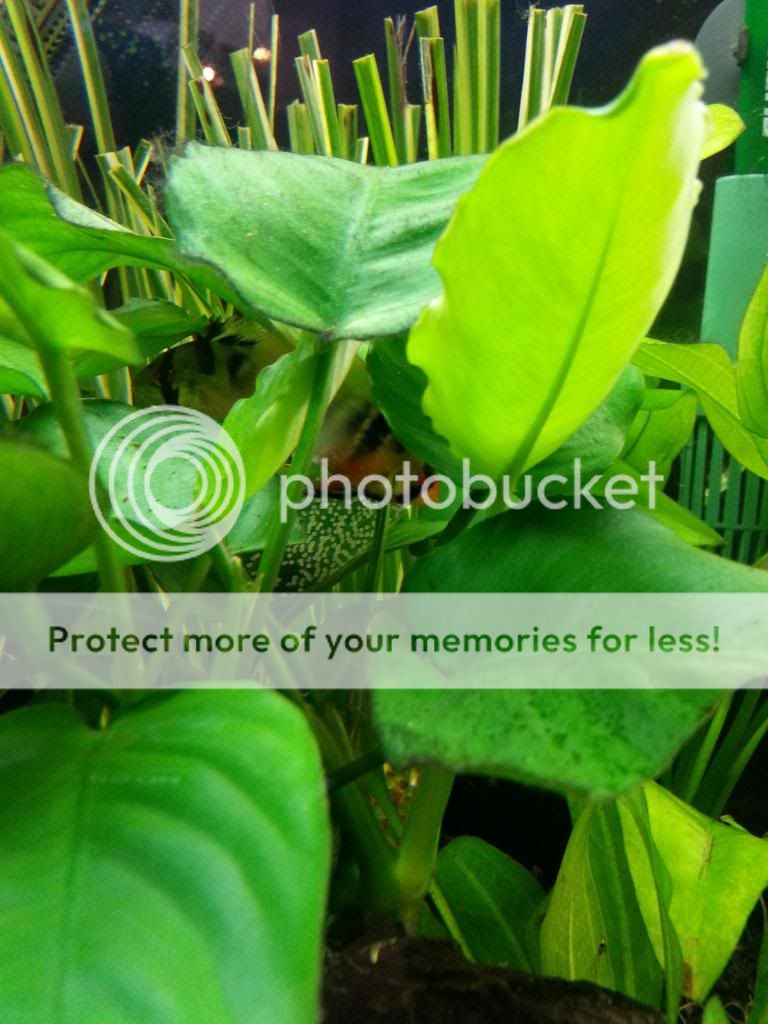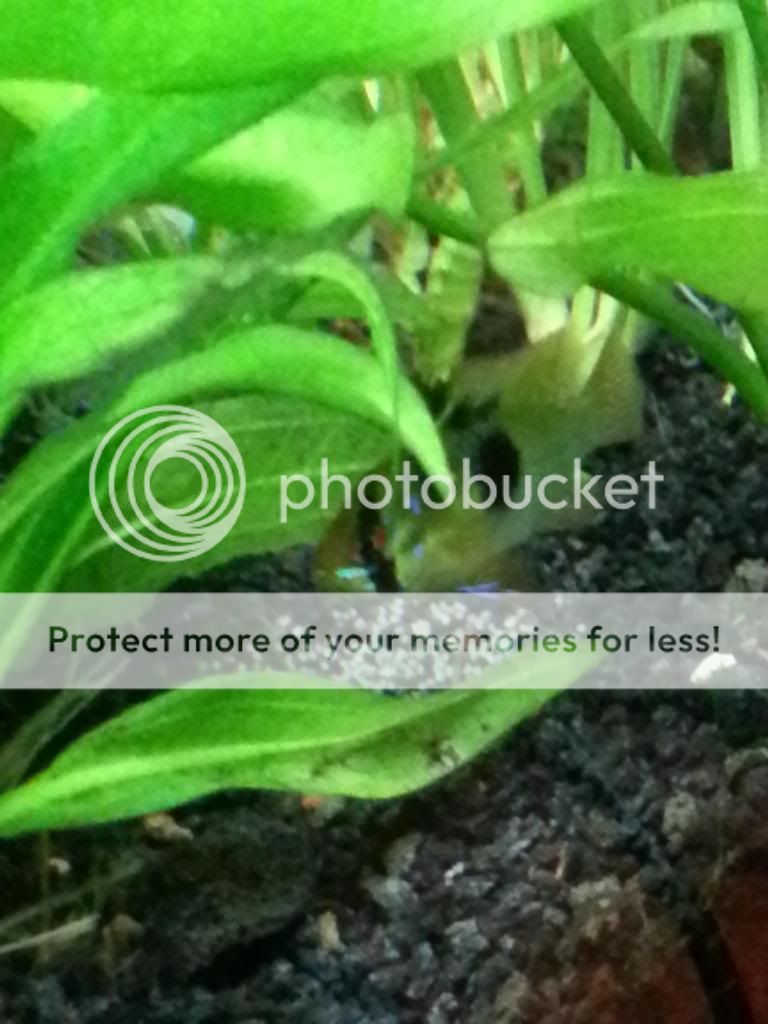Hello there all.
My Blue Rams had their first spawning.
It wasn't a roaring success. I woke up one morning 3 days after the eggs were laid, and they were gone. (most were unfertilised). Cleaning the tank 2 days later I found a baby stuck to the side of the tank. Its been rescued and is doing fine. I assume the eggs disappearing had in fact hatched. I thought the parents were supposed to protect the young like they do the eggs.
So
1. Will the pair of rams stay a pair, or will the male migrate to other females that are spawning?
2. Will they settle down and do their thing properly?
3. Would I have them less stressed, and therefore, better able to do their parenting, if I gave them their own tank?
Any suggestions?
At the moment they are in a 110L community tank.
My Blue Rams had their first spawning.
It wasn't a roaring success. I woke up one morning 3 days after the eggs were laid, and they were gone. (most were unfertilised). Cleaning the tank 2 days later I found a baby stuck to the side of the tank. Its been rescued and is doing fine. I assume the eggs disappearing had in fact hatched. I thought the parents were supposed to protect the young like they do the eggs.
So
1. Will the pair of rams stay a pair, or will the male migrate to other females that are spawning?
2. Will they settle down and do their thing properly?
3. Would I have them less stressed, and therefore, better able to do their parenting, if I gave them their own tank?
Any suggestions?
At the moment they are in a 110L community tank.





